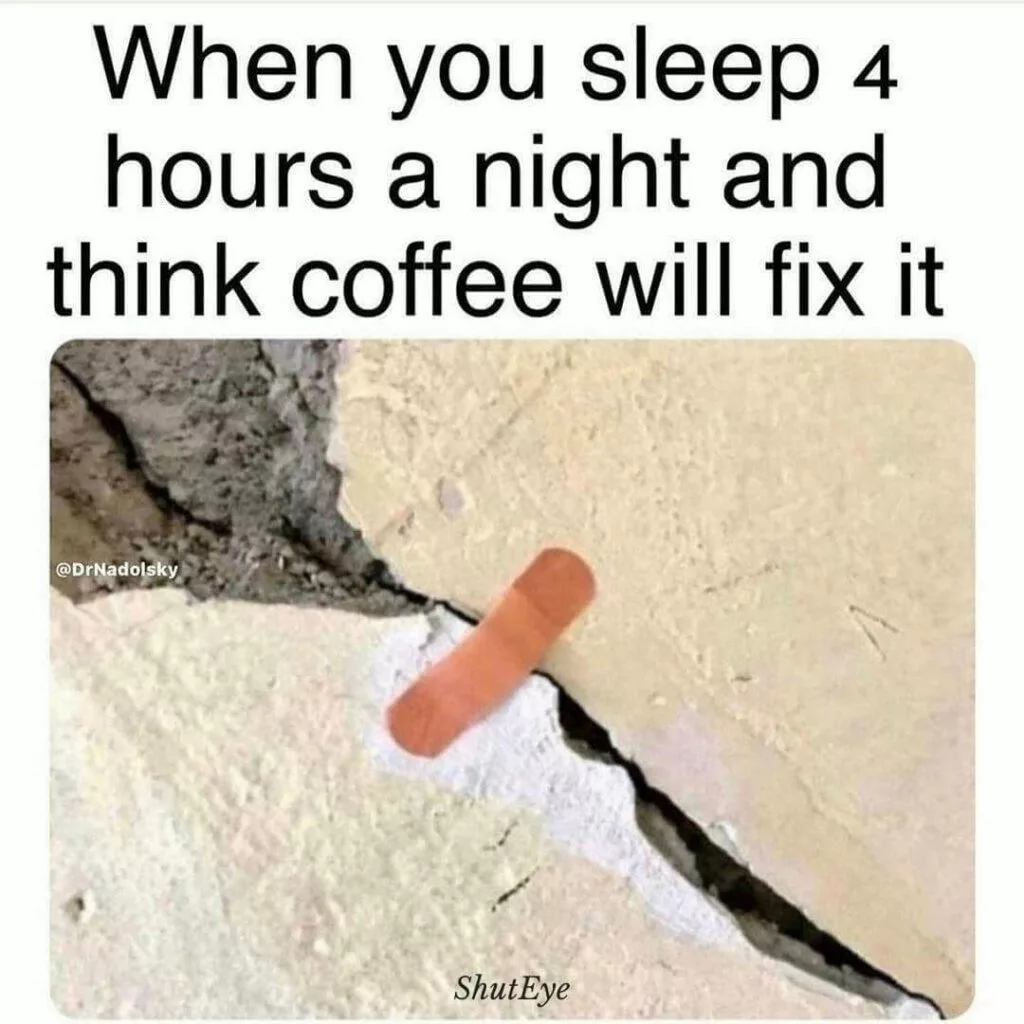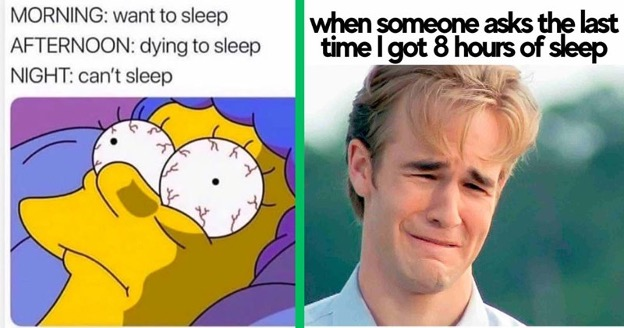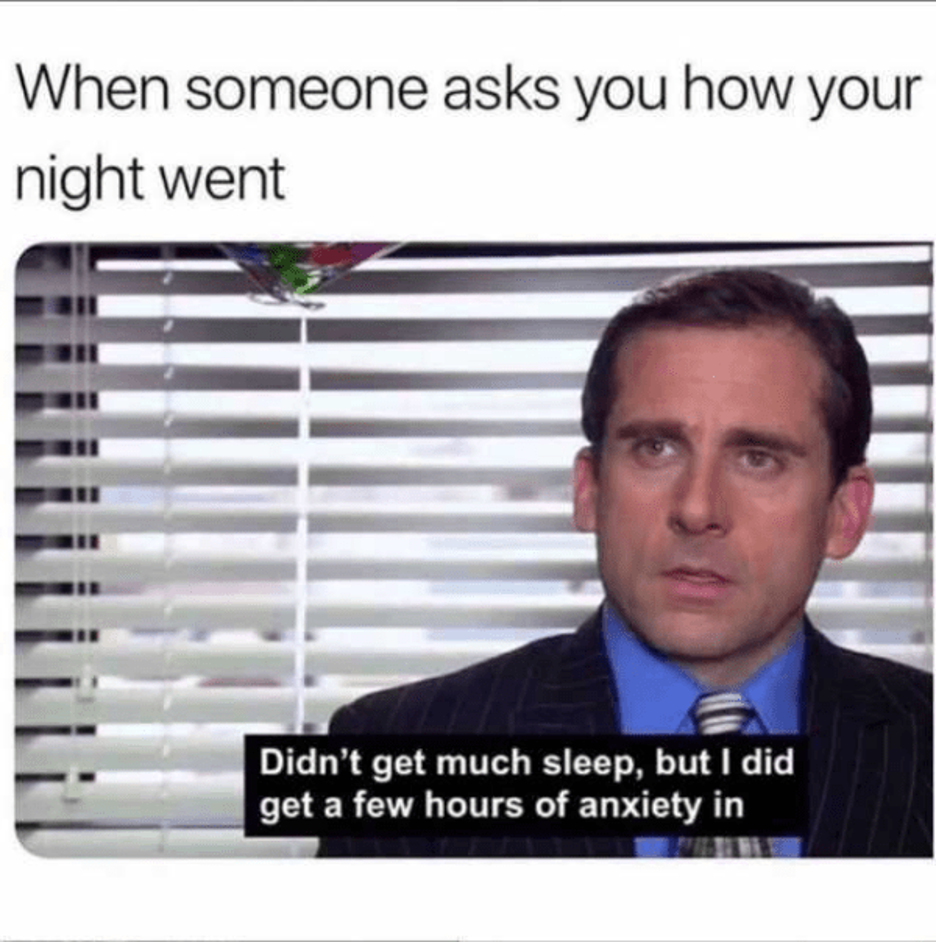Whether you’re a gym rookie or a seasoned fitness fossil, you’re gonna face these burning questions sooner or later: What’s the magic protein number? Should focus on HIIT training or mix in more steady-state cardio? Do I need a supplement stash that rivals a small pharmacy? And the perennial head-scratcher: How many days a week is optimal to train?
Amidst all this fitness chaos, we often forget about the unsung hero of well-being – sleep. Let’s face it, the choices we make today, including whether to hit snooze or not, determine where we’ll end up in the future. Let’s not be guy or gal that is busy deciphering cryptic supplement labels and completely overlooks the power of a solid night’s sleep. I can’t emphasize enough how important this is – so keep on reading!

Fun fact: we spend a whopping 1/3rd of our lives catching Z’s. Yep, that’s a whole lot of shut-eye, especially when we’re hustling to live are best and get ahead in life. But here’s the real kicker – this is prime time for our bodies to hit the reset button and recover. Poor sleep equals a poor recovery, and a poor recovery is like the kryptonite for top-notch performance. Unless, of course, you’re some kind of sleep ninja (but let’s be honest, that’s a long shot).
Now, I’m not saying one lousy night of sleep will neccessarily crush performance, but string a bunch of those nights together over weeks, months, or years, and you might find yourself falling short of your goals.… or even worse, suffering an injury.

Quality sleep is not just a break for your body; it’s a crucial process intricately linked to the overall well-being of athletes. Optimal sleep, including sufficient REM and deep sleep cycles, not only plays a pivotal role in recovery, but also in consolidating memories, improving cognitive function, strengthening the immune system, regulating hormone production, and promoting mental health.
On top of the recovery aspect, there is a direct link with pain and poor sleep. Evidence shows that people with poor sleep are more likely to report higher pain levels. So if your gym buddy is constantly complaining about pain (and yes, we all know at least 1), they’re probably not sleeping too well either. Even worse, when pain is consistent and chronic, it can influence the surrounding muscles’ ability to work, holding us back in our workout, and making us under perform.
Now we’re not trying to point any fingers or call you out, but if you notice yourself doing any of these or experiencing any of the follow, there’s a good chance you’re getting poor sleep:
- Needing an alarm clock to wake up (then hitting the snooze)
- Falling asleep within 5 minutes of hitting the pillow
- You nap often and easily
- You experience frequent brain fogs or struggle to concentrate (and you need caffiene to remedy it)
- You always feel fatigued

Here’s the good news! There are many things you can start doing TODAY to change those bad habits and get you sleeping 8 hours like a baby. Check it out!
- View morning sunlight with 30-60 minutes of waking (helps circadian rhythm) for 15-20 mins
- Exercise
- Get into a bedtime routine at least 30 minutes before bed (60 is preferred)
- Limit blue light exposure (shut the screens off!)
- Turn down of off as many lights as possible
- Take a hot shower
- Read a book
- Limit the amount of caffeine intake especially after lunch
- Reduce alcohol intake (it may help you fall asleep, but the sleep quality will be significantly worse)
- Set a consistent sleep and wake schedule and don’twaiver from it (including weekends!)
- Limit naps to 20 minutes and not after 3pm
- Keep your room cool and dark (best sleep temperature is found to be ~65 degrees)
Not only will this help your mental wellbeing each day, but it’ll improve your ability to recover, imporve overall sport performance, and push you closer toward your goals. Sleep health is not a luxury, it’s a necessity for any athlete. By prioritizing your sleep, you can enhance your recovery, improve your workouts, and achieve your goals. Here’s your reminder to make a commitment to improve your sleep, one night at a time. If you’re an injuried athlete who isn’t sleeping well or wakes up with pain each morning, we can help. Check out our website for more info or Click Here to get in touch!
Dr. Mike

